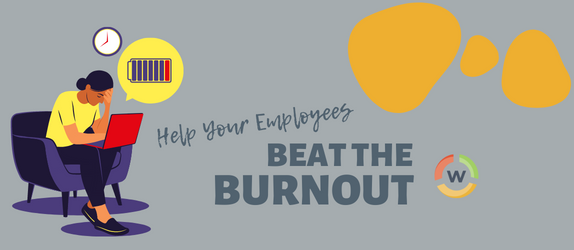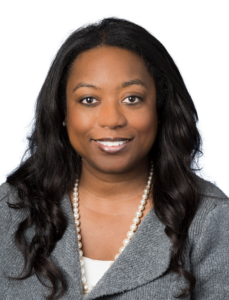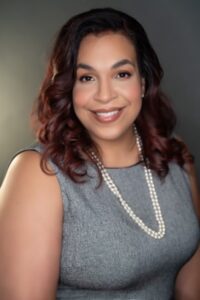The Third-Degree Burn: The Experience of Women in the Post-Pandemic Era

by Andrea Grant, CDSP and Dr. Denise L. Caleb
Following the pandemic, women were especially impacted by job loss and the strain of taking on additional and multiple roles during the pandemic, such as: (a) caretaker, (b) hospice provider, (c) teacher, (d) principal, and (e) counselor. Learn from the personal insights of wounds imprinted on women during the pandemic and how women are healing from these pain points.
Hold onto your seat!
We started part one of our series with a general approach of opening a discussion regarding why women are “quietly quitting,” why women need to be louder, and described what is happening in the executive suite. Lack of representation, the pressure of being “the only,” and the impact of the pandemic is causing the burn for women.
We know that all experiences are different for women. Some are carrying more burdens, and some are carrying less weight on their shoulders. At the end of the day, the demands are real and need to be noticed and addressed. If you are not experiencing “third-degree burns” from burnout, you could. As you continue with us through this blog series, you will find out what some women are experiencing and how to flip the script, belong, and prevent burnout.

Life as a woman beyond the boardroom
I had the pleasure of meeting Andrea Grant several years ago and invited her to share her story, which is often a lived experience for many of us. Join me in taking this candid journey with Andrea Grant:
I never signed up for any of this. I didn’t raise my hand or structure my life to become a special-needs mom at 20 years old or a full-time caretaker for a parent shortly after turning 40 years old. I certainly never would have thought I’d be “sandwiched” between both roles — but this was about to be my life — for a very long time.
Don’t get me wrong. I love my son and my parents. I intentionally only had one child to be sure he never had to worry about me loving another child more than him, or him not having all my time, attention, and affection. Having a medically fragile child, with one life-threatening need after another, is scary and exhausting. It’s frustrating too! You grieve the child you may never have repeatedly. In the case of my parents, I was my dad’s shadow and I cared for him in different ways over the years. But this was going to be different. There is no way to prepare for this. This was going to be arduous because my role had expanded into providing 24/7 care after his stroke. I was now the sole caretaker for the two most important men in my life.
I had worked so hard to climb the corporate ladder for a little over 20 years. It took me from 1996 to 2013 to reach VP status and another three years of exceeding every business goal and metric to earn the SVP title. To some, it probably looked like a linear path, but it wasn’t. Most people knew I was a mom, but they had no idea how many times I worked from a hospital parking lot, bathroom, or closet to meet with a prospective client or close a deal.
I was careful not to provide any trace of how significant my caretaker role was out of fear of retaliation. I’m a black woman, in corporate America, that was responsible for the health and well-being of two people who require a substantial amount of care. The inequitable magnifying glass had just gotten bigger and I had to do what I had to do to be sure I wasn’t exposed.
Andrea Grant, mom, caregiver, and executive
I would overcompensate in just about every area. I would deliver my work as close to perfection as possible and as early as possible in case something happened to my son or dad. I couldn’t make a mistake or miss a deadline. That would feed the stereotype about black women, or women caretakers, and I wasn’t going to let that happen. The constant pressure to self-monitor was elevated — speech, tone, facial expressions, response times, whether or not to respond, and more. I was not only responsible for myself but for any other black woman who would come after me. This level of scrutiny and responsibility is absurd and painfully real.
Year after year I started to unmask. With mentoring, coaching, sponsorship, and therapy I learned that I’m not a superwoman and that’s perfectly okay. I also learned that I had always delivered, or exceeded expectations and would continue to do so, and needed to stop applying this unrealistic burden of perfectionism on myself.
To make a very long story short, to date, I have achieved two very important things that no one can take away from me — celebrated my son’s high school graduation in 2017 and took the best care of my dad for almost six years until he passed in my care on Thanksgiving morning in 2022, when he kissed me and went into a peaceful sleep.
Please don’t judge or feel sorry for me. Maya Angelou said, “If you find it in your heart to care for somebody else, you have succeeded.” So, it’s truly an honor and blessing to have the amazing responsibility to care for the two most important men in my life.
What support looks like
The stories of women need to be told, including all the factors that can potentially lead to burnout. When we think of Andrea’s story, I think of my story of caretaking, for three children through eight military deployments. I also share the same lived experience of Andrea, with a son who is part of the neurodiverse community and a mother who had a stroke and has needed care and support since 2011.
What Andrea did not share is how complex all of this becomes when you do not have the needed support from your manager, peers, or within the work culture — that causes this notion we reference as “third-degree burns.” The workdays Andrea and others in her same situation experience include numerous doctor visits, tests, prescriptions, misdiagnoses, scrambling to find adequate internet service for meetings to prepare proposals, making dinner, being the “Uber” driver, etc. All this while juggling work. As a caregiver, Andrea was responsible for daily living activities (bathing, clothing, dressing, feeding, etc.), plus she was her dad’s legs since he could not walk after his stroke. These responsibilities were occurring all while understanding his physical and mental health needs amid watching him decline.
We are more than KPIs
Andrea’s story is inspiring and an example of what can lead to “third-degree burns” because of burnout. Despite the weight she carried, she exceeded job expectations, KPIs, and more, without letting others see her sweat. What happens to women who can’t handle the weight? It is important to remember as colleagues and managers that each have women on our teams, within our executive teams, and within the c-suite with different lived experiences. When we manage performance, keep in mind you are managing more than a KPI, there is a whole person, who might be balancing caretaking of others with competing medical needs. At times, Andrea had to make the difficult decision of who to care for first — that is a difficult place to be as an executive, as a woman, as a daughter, and as a mother. When these life experiences take place, and the organization’s culture and its leaders lack understanding, it not only leads to burnout but also a lack of belonging.
What’s next?
Let us make sure we are listening and creating space for women to be heard. During the next part of our series, we will delve into some solutions and what it means to lead with an environment of belonging.

Dr. Denise Caleb, M.Ed., CME, SHRM-CP, PHR, is the First Vice President and Director of the Human Capital Consulting Practice, where she leads the Human Resources (HR), Organizational Development (OD), Diversity, Equity, Inclusion, and Belonging (DEIB) Strategy, and Creative Service lines of business.
As one of the leading experts in the country on DEIB, holding a CHRO position twice, spending more than 25 years in human resources, business development, and executive leadership roles, and a military spouse of 27 years, Dr. Caleb is focused on innovating and leading the Human Capital strategies and expanding the service lines to enhance FutureSense’s DEIB capabilities.

Andrea Grant is an altruistic business leader with over 20 years of progressive experience spanning a myriad of the public and private sectors. Her relentless commitment to diversity, equity, inclusion, accessibility, and belonging (DEIAB) and justice for underrepresented groups ensures all staff are seen, heard, valued, and respected.
Andrea leads the growth and expansion efforts for the Human Capital (HC) practice line and division for FutureSense, an Alliant company, a 30-year publicly traded consulting firm, to generate exponential growth for new business. She leads all aspects of client relationships and experiences to provide solutions and results, elevating the ESG and DEIAB for each client in the HC FutureSense, An Alliant Company portfolio.
Share this article:
Other Articles
